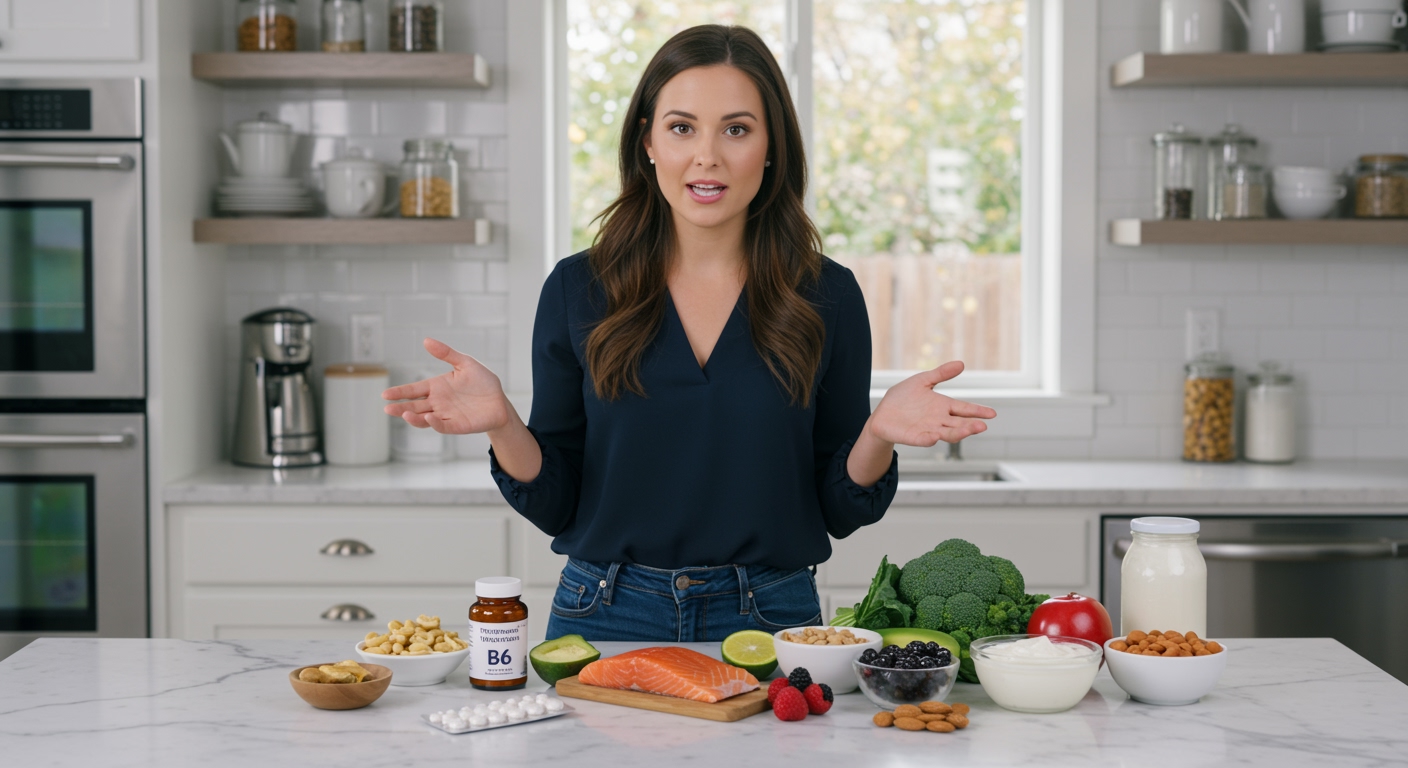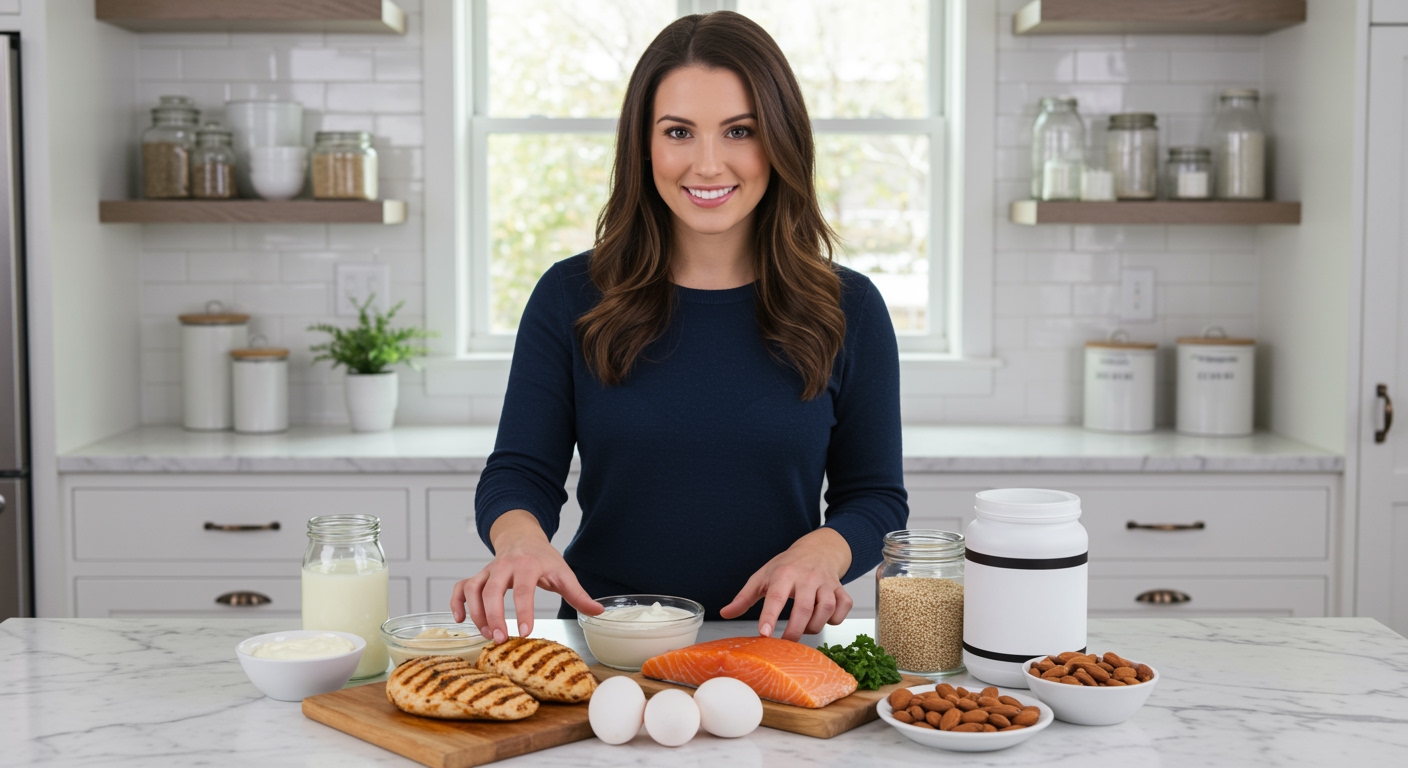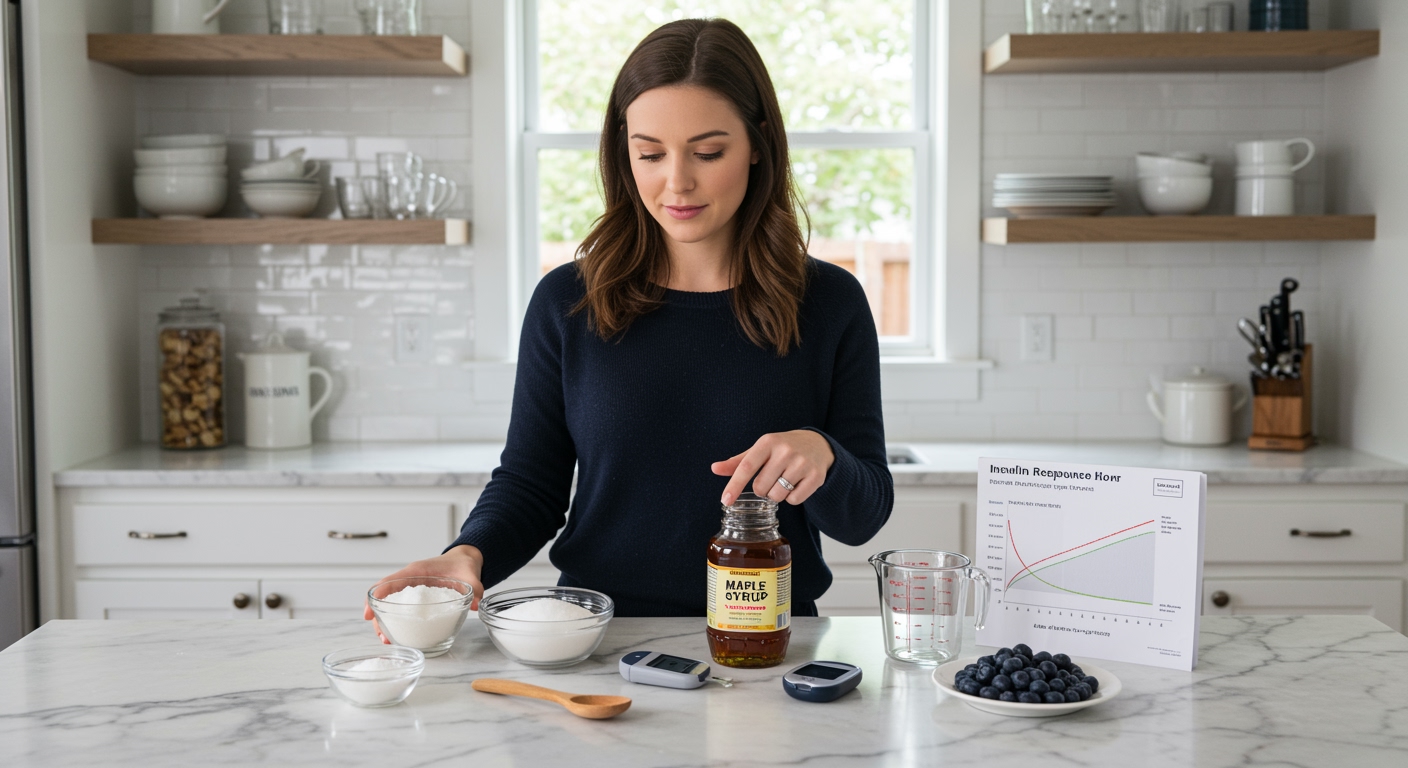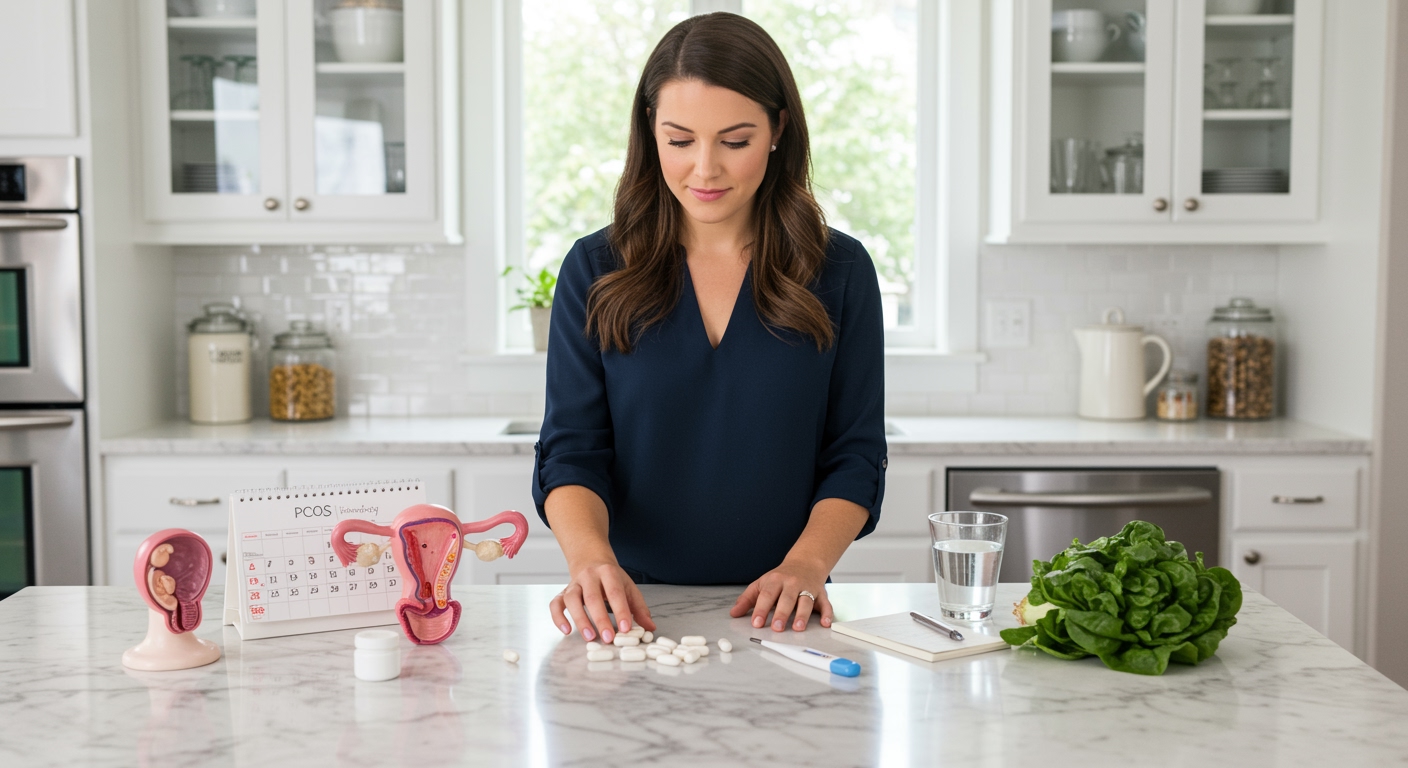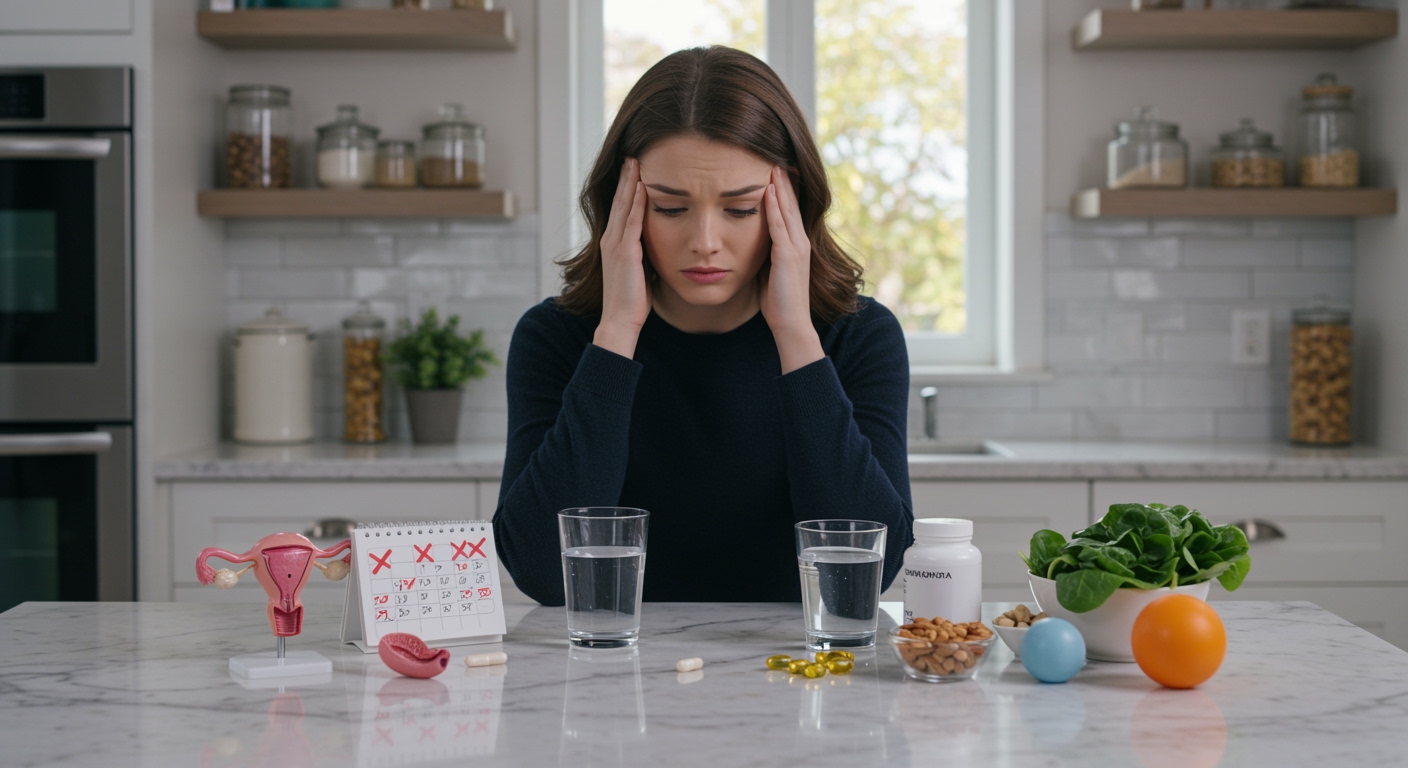✪ Key Takeaway: Birth control pills alter nutrient absorption and increase specific vitamin needs in women with PCOS.
Introduction
Your doctor hands you a birth control prescription for PCOS management, but nobody mentions the hidden nutritional changes happening inside your body.
You might be wondering if taking hormonal contraceptives affects what nutrients your body needs and how much food you should eat.
Hi, I’m Abdur, your nutrition coach and today I’m going to explain exactly how birth control impacts your PCOS nutrition needs and what you can do about it.
How Does Birth Control Change Your Body Chemistry?
Birth control pills contain synthetic hormones that dramatically alter your body’s natural hormone production.
These artificial hormones suppress your ovaries from making their own estrogen and progesterone.
Your liver works overtime to process these synthetic hormones, which changes how it handles nutrients and toxins.
The pill also affects your gut bacteria composition, which plays a crucial role in vitamin production and nutrient absorption.
These changes create a cascade effect that impacts your metabolism, blood sugar control, and inflammatory responses.
✪ Fact: Birth control pills can alter gut bacteria within just one menstrual cycle of use.
Which Nutrients Does Birth Control Deplete?
The most significant depletion occurs with B vitamins, especially B6, B12, and folate.
Your body uses extra B6 to process the synthetic hormones, leaving less available for neurotransmitter production.
Vitamin C levels drop because the pill increases oxidative stress and inflammatory processes in your body.
Magnesium and zinc become depleted as your liver works harder to metabolize the synthetic hormones.
Selenium levels often decrease, which affects your thyroid function and antioxidant protection.
These depletions happen gradually over months and years, making them hard to notice until symptoms appear.
✪ Pro Tip: Get nutrient testing done before starting birth control to establish your baseline levels.
Does PCOS Make These Nutrient Changes Worse?
Women with PCOS already have insulin resistance, which affects how their bodies use nutrients.
Adding birth control creates a double burden on your metabolic processes.
PCOS causes chronic low-grade inflammation, and birth control can increase this inflammatory state.
Your body needs more antioxidants and anti-inflammatory nutrients to handle both conditions simultaneously.
The combination often leads to faster depletion of magnesium, which is already low in many PCOS women.
This creates a perfect storm where your nutritional needs increase while your absorption capacity decreases.
✪ Note: PCOS women on birth control need 25-50% more magnesium than those not using hormonal contraceptives.
What Foods Should You Prioritize?
Focus on nutrient-dense whole foods that provide the vitamins and minerals your body is losing.
Leafy greens like spinach and kale provide folate, magnesium, and vitamin C in easily absorbed forms.
Wild-caught fish supplies B12, omega-3 fatty acids, and selenium to support your liver function.
Nuts and seeds offer magnesium, zinc, and healthy fats that help with hormone production.
Fermented foods like yogurt and sauerkraut support your gut bacteria and improve nutrient absorption.
Colorful berries provide antioxidants that help combat the increased oxidative stress from synthetic hormones.
✪ Pro Tip: Eat vitamin C-rich foods away from iron-rich meals to maximize absorption of both nutrients.
Should You Take Supplements?
A high-quality B-complex supplement becomes essential for most women on birth control.
Look for methylated forms of B vitamins, which are easier for your body to use and absorb effectively.
Magnesium glycinate provides better absorption than cheaper forms like magnesium oxide.
A quality multivitamin designed for women can help fill the gaps, but it should not replace healthy eating.
Omega-3 supplements become more important because birth control can increase inflammation and oxidative stress.
Always work with a healthcare provider to determine your specific needs based on blood tests and symptoms.
✪ Note: Take supplements with food to improve absorption and reduce stomach upset.
The Bottom Line
Birth control pills definitely change your nutritional needs, especially when you have PCOS.
Your body is not broken, it just needs the right fuel to function optimally under these circumstances.
I would love to hear about your experiences with birth control and nutrition in the comments below – what changes have you noticed in your body and what strategies have worked best for you?
References
At NutritionCrown, we use quality and credible sources to ensure our content is accurate and trustworthy. Below are the sources referenced in creating this article:
- PCOS Nutrition: Risks of Birth Control for PCOS
- PubMed Central: Hormonal Contraceptive Choice in Women with PCOS
- Mass General Brigham: Nutrition for PCOS
- Healthline: Birth Control Effects on Body
